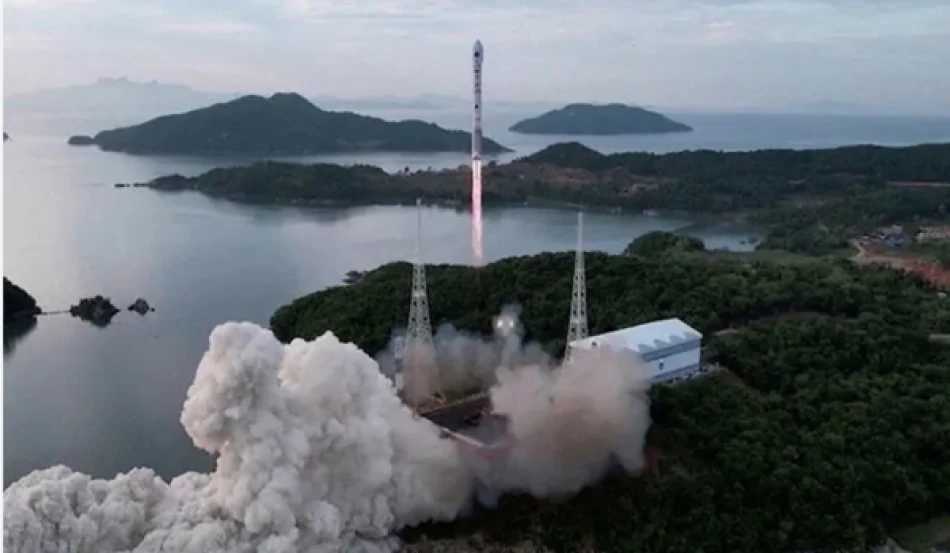
North Korea Asserts Its Right to Explore Space, Sparking Global Debate
North Korea Doubles Down on Space Ambitions as Military-Civilian Space Program Matures
North Korea has reaffirmed its commitment to expanding space exploration capabilities, marking three years since controversial legal reforms that explicitly merged civilian space development with military defense objectives. The declaration signals Pyongyang's intention to accelerate its space program despite international sanctions, positioning itself as a legitimate space power while potentially advancing ballistic missile technology under the guise of satellite launches.
Legal Framework Enables Dual-Use Space Technology
Jang Song-chol, dean of Kim Il-sung University, emphasized North Korea's "legal right" to space exploration in a government statement Friday, referencing the 2022 parliamentary revision of the Outer Space Development Law. This legislative update marked a critical shift by explicitly incorporating defensive capabilities into the country's space mandate—a move that effectively legitimizes military applications of space technology under domestic law.
The timing of this announcement is significant. North Korea has increasingly framed its missile tests as satellite launch exercises, exploiting the technical overlap between space launch vehicles and intercontinental ballistic missiles. Both technologies require similar propulsion systems, guidance mechanisms, and reentry capabilities.
Strategic Positioning Amid Global Space Race
North Korea's space ambitions reflect broader geopolitical tensions in the region. While countries like South Korea, Japan, and India have established legitimate commercial and scientific space programs, Pyongyang's approach remains heavily militarized. The country successfully placed a reconnaissance satellite into orbit in November 2023, demonstrating tangible progress despite limited resources and international isolation.
Talent Development as Long-Term Strategy
Jang's commitment to "nurturing more talent in the space law sector" suggests North Korea is building institutional capacity for sustained space operations. This focus on legal and technical expertise indicates the program extends beyond symbolic gestures toward practical implementation. The emphasis on aligning with "international and domestic laws" appears designed to provide legal cover for activities that may violate UN Security Council resolutions prohibiting ballistic missile development.
International Implications and Sanctions Challenges
North Korea's space program operates under severe constraints. UN sanctions prohibit the country from conducting ballistic missile tests, and space launches using ballistic missile technology fall under these restrictions. However, the dual-use nature of space technology creates enforcement challenges for the international community.
Unlike Iran, which has developed space capabilities while maintaining some international engagement, North Korea's complete isolation forces it to develop indigenous capabilities. This self-reliance approach, while slower and more expensive, potentially makes the program more resilient to external pressure.
Regional Security Calculations
For neighboring countries, North Korea's space program represents a direct security challenge. Reconnaissance satellites provide intelligence-gathering capabilities that enhance the effectiveness of ground-based military assets. South Korea and Japan have responded by accelerating their own defense space programs, including satellite-based missile defense systems.
The declaration also serves domestic political purposes, reinforcing the regime's narrative of technological advancement and international legitimacy. By framing space development as a legal right rather than a military program, North Korea attempts to shift international discourse away from sanctions enforcement toward sovereignty principles.
As North Korea continues developing space capabilities under legal frameworks designed to circumvent international restrictions, regional powers face the challenge of responding to a program that blends legitimate scientific pursuits with clear military applications. The success of this strategy may influence how other sanctioned nations approach dual-use technology development in the future.
Most Viewed News

 Layla Al Mansoori
Layla Al Mansoori






